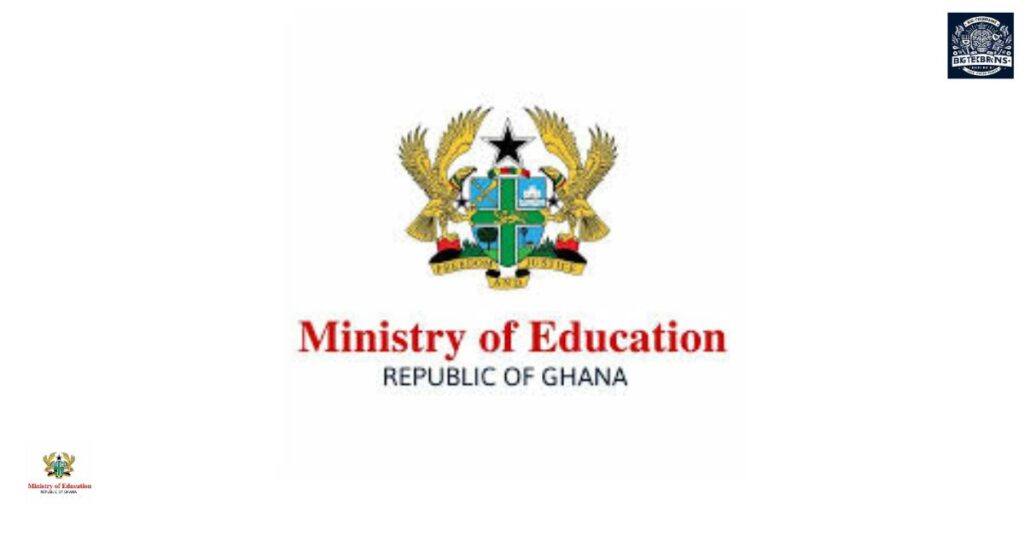Excerpt
The Ministry of Education (MoE) of Ghana is the governmental body responsible for formulating and implementing national educational policies, ensuring accessible and quality education for all citizens. Its mission is to develop an education system that meets labor market demands, enhances human development, and fosters national integration.
Historical Background
Established under the Civil Service Law 327 and the PNDC Law 1993, the MoE has evolved to oversee various educational reforms aimed at improving teaching and learning outcomes. A significant initiative is the Education Strategic Plan (ESP 2018-2030), approved by the cabinet in November 2018, which outlines key reforms to transform education in Ghana.
Constitutional Mandates
The MoE operates under the framework of Ghana’s Constitution and relevant legislative instruments, including the Education Act 2008 (Act 778). These laws mandate the Ministry to develop and implement policies that ensure inclusive and equitable access to education at all levels.
Leadership and Organizational Structure
The Ministry is headed by the Minister of Education, appointed by the President of Ghana. Supporting the Minister are Deputy Ministers and Chief Directors who oversee various directorates and units within the Ministry. The organizational structure includes departments such as:
- Planning, Budgeting, Monitoring, and Evaluation
- Human Resource Management
- Finance and Administration
- Teacher EducationTechnical and Vocational Education
Agencies and Units
The MoE supervises several agencies responsible for specific aspects of the education sector, including:
Ghana Education Service (GES):
- Implements government policies on pre-tertiary education, manages public basic and secondary schools, and oversees teacher recruitment and deployment.
Ghana Tertiary Education Commission (GTEC):
- Regulates tertiary education institutions, ensuring quality and standards in higher education.
Commission for Technical and Vocational Education and Training (CTVET):
- Oversees technical and vocational education, aligning training programs with industry needs.
National Council for Curriculum and Assessment (NaCCA):
- Develops and reviews curricula to meet educational standards and societal needs.
National Teaching Council (NTC):
- Regulates teaching standards and promotes professional development for educators.
National Schools Inspectorate Authority (NaSIA):
- Ensures compliance with educational standards through regular inspections of schools.
These agencies function under the MoE’s guidance to achieve the nation’s educational objectives.
Appointment and Recruitment
Appointments within the MoE and its agencies are governed by public service regulations. Key positions, such as the Minister and heads of agencies, are appointed by the President of Ghana, often in consultation with relevant advisory bodies. Other roles are filled through competitive recruitment processes to ensure merit-based selection.
Oversight and Partnerships
The MoE operates under the oversight of the Government of Ghana, with accountability to Parliament and the public. It collaborates with various stakeholders, including international organizations, non-governmental organizations, and private sector partners, to enhance educational delivery and infrastructure. Key partners include UNICEF, USAID, and the World Bank, which support various educational initiatives in Ghana.
Operations and Roles
The Ministry’s core functions encompass policy formulation, coordination, monitoring, and evaluation of educational programs. It ensures that educational policies are effectively implemented across all levels of education, from basic to tertiary. The MoE also focuses on teacher development, curriculum development, and the provision of educational resources to institutions nationwide.
Historical Reforms
- Over the years, the MoE has spearheaded several reforms to improve educational outcomes. Notably, the introduction of the Free Senior High School policy aimed to increase access to secondary education. Additionally, the implementation of the new standards-based curriculum seeks to enhance the quality of education at the basic level. The Ministry continues to pursue reforms that align with global best practices and the evolving needs of Ghanaian society.
References
- https://moe.gov.gh/index.php/about-us-3/
- https://moe.gov.gh/
- https://moe.gov.gh/index.php/ministry-organogram/
- https://ghanaeducationnews.org/list-of-agencies-under-ministry-of-education/
- https://generisonline.com/an-overview-of-the-education-system-in-ghana-structure-and-government-oversight/
- https://geshub.org/download/organizational-structure-chain-of-command-within-ges-pdf/
- https://kingcyrusonline.com/outline-of-ghana-education-services-ges-new-organizational-setup/
- https://coverghana.com.gh/list-of-16-agencies-and-affiliates-of-ministry-of-education-and-their-roles/
- https://ges.gov.gh/wp-content/uploads/2020/08/organizational_Chart_GES.pdf
- https://www.mofep.gov.gh/sites/default/files/pbb-estimates/2022/2022-PBB-MOE.pdf
- https://www.gcbbank.com.gh/research-reports/sector-industry-reports/358-ghanas-education-sector-report-2023-v2-1/file

